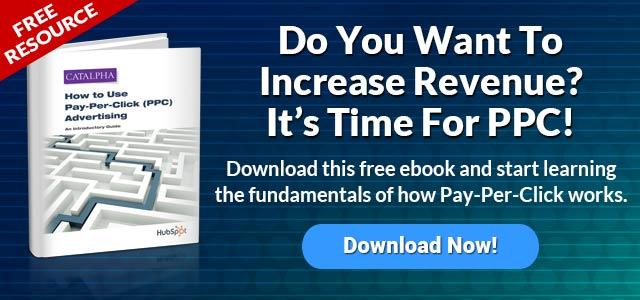
Pay-Per-Click (PPC) advertising can be a powerful tool in your marketing toolbox. But it can be overwhelming, time consuming and expensive if not set up & run properly. If PPC has you 'dazed and confused' you are not alone.
When a PPC campaign is humming smoothly, it can be not just a source of leads and income but a tool to see into the minds of your customers and what makes them respond and ultimately buy.
Review these 10+ tips and implement as many as possible to get your campaign up and back on track.
1. Use Negative Keywords
I made this my number 1 tip because it's the easiest to implement and will have a huge impact in a short amount of time. Use negative keywords for your ad groups that eliminate money wasting clicks! A good start to a list include words like, 'career' and 'jobs'.
2. Test singular against plural keywords.
Believe it or not, a singular or plural keyword can have a big impact on your campaign. Knowing which converts the best is a project worth undertaking. Separate those into their own Ad Groups.
3. Narrow your time window.
Narrow the Scheduled time your ads will show to the most effective time and impact your bottom line. Analyze your campaign to determine when most of your conversions take place. If conversions are not happening at 2am, then you don't want to be advertising at that time. This will help force more of your marketing dollars into a time slot that performs better for you.
4. Is your Home Page your Landing Page?
Not always. A home page is rarely your landing page. Especially for B2B services. Send your clicks to a specific page that talks about what your ad implied. Give them exactly what they seek and you'll see your conversions spike.
5. Specificity is Key!!
When setting up your campaign, break down your keywords, ads and landing pages (yes, I said pages) into different SPECIFIC categories. The more specific you can get your keywords to relate to an ad, that relates to a landing page will give a user exactly what they search for and what you seek as well - a purchase or lead.
6. Break down your audience by Geography
Not all parts of the country respond the same to your ads. If you set up your campaign to reach a national audience, your response rates most likely differ depending on which state or city they come from. BUT, you won't be able to tell when they are lumped together. Split them apart and start to learn which state / city is most profitable. Eliminate the non-performers. That's what its all about.
7. Test, test, test your ads.
Not all ads perform the same. Google Adwords is best used when testing one ad against another, even one landing page against another. Write ads that stand out. Take a chance. You'll soon have an answer as to what's working, then you can move on toward the BEST converting ad.
Landing pages work the same way.
8. Watch Your Quality Score
Better landing pages can help improve your Quality Score. Did you know that an improvement in your Quality Score can decrease your click cost? You should be shooting for a 7 quality score or better. Lower QS means Google does not think your landing page is meant for your ad clicks.
9. Use Your Keywords in your ad
Having a keyword appear in an ad that relates to the keyword searched will increase your chances of getting that click. Test using the keyword in the headline and the body.
10. Separate search and display campaigns
Display advertising is an animal unto its own and if left unchecked can gobble up your budget. To start, just use a search campaign and get back to Display advertising when you have more experience and confidence.
11. Tell Google To Show Your Ads Evenly
As mentioned above, you should always be testing new ads against solid performers. To do this you need to have all ads to display an even amount of the time to accurately know which ad performs best. To do this set your Ad Delivery to Show all ads evenly.
12. Use Retargeting Ads
A very overlooked option of Google PPC is retargeting. These are display ads that are shown to people who have visited your page. They are shown display ads (you create) that reminds them of your service or product. These can be very effective. And like all ads should be tested and broken down by page visited.
13. Run search query reports regularly
Search query reports or keyword detail reports are great ways to find new keywords you may have missed and/ or find negative keywords that are wasting your budget.
14. Broad match, vs Exact vs Phrase match keywords
Avoid Broad Match keywords. Using Broad Match designation gives Google the authority to show your ads to a VERY wide interpretation of your keyword. Remember 'specificity is key'? This applies here.
15. Watch your click through rates ( CTR )
A good click through rate is usually above 2.00% A good click through rate doesn't always mean good conversions, but it is a good indication that your ad is saying the right thing to that customer. Now if you are getting a good CTR but no conversion then take a look at your Landing page.
16. Small Gains In Adwords Can Have Big Impacts On Your Bottom Line
Small positive changes to your campaign can greatly impact your results. A better CTR, a lower CPC, more effective keywords, better performing landing pages. These improvements add up and over time can greatly improve your ROI.
My advice - Keep up the good work. Don't get frustrated, ask for help in needed. Whether from Google or another PPC professional. It will be worth the investment. Pay Per Click marketing should definitely be a part of your marketing plan!

